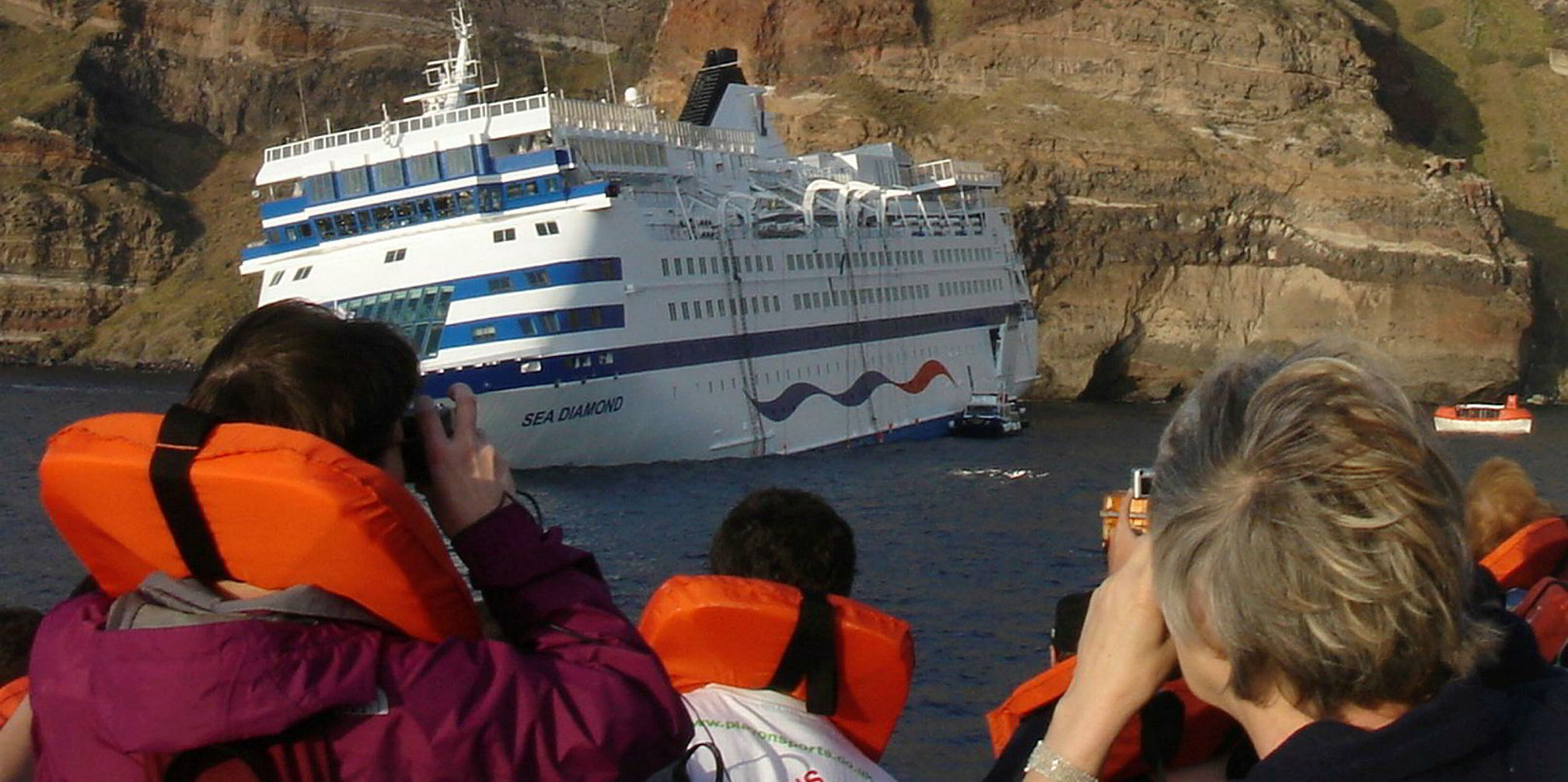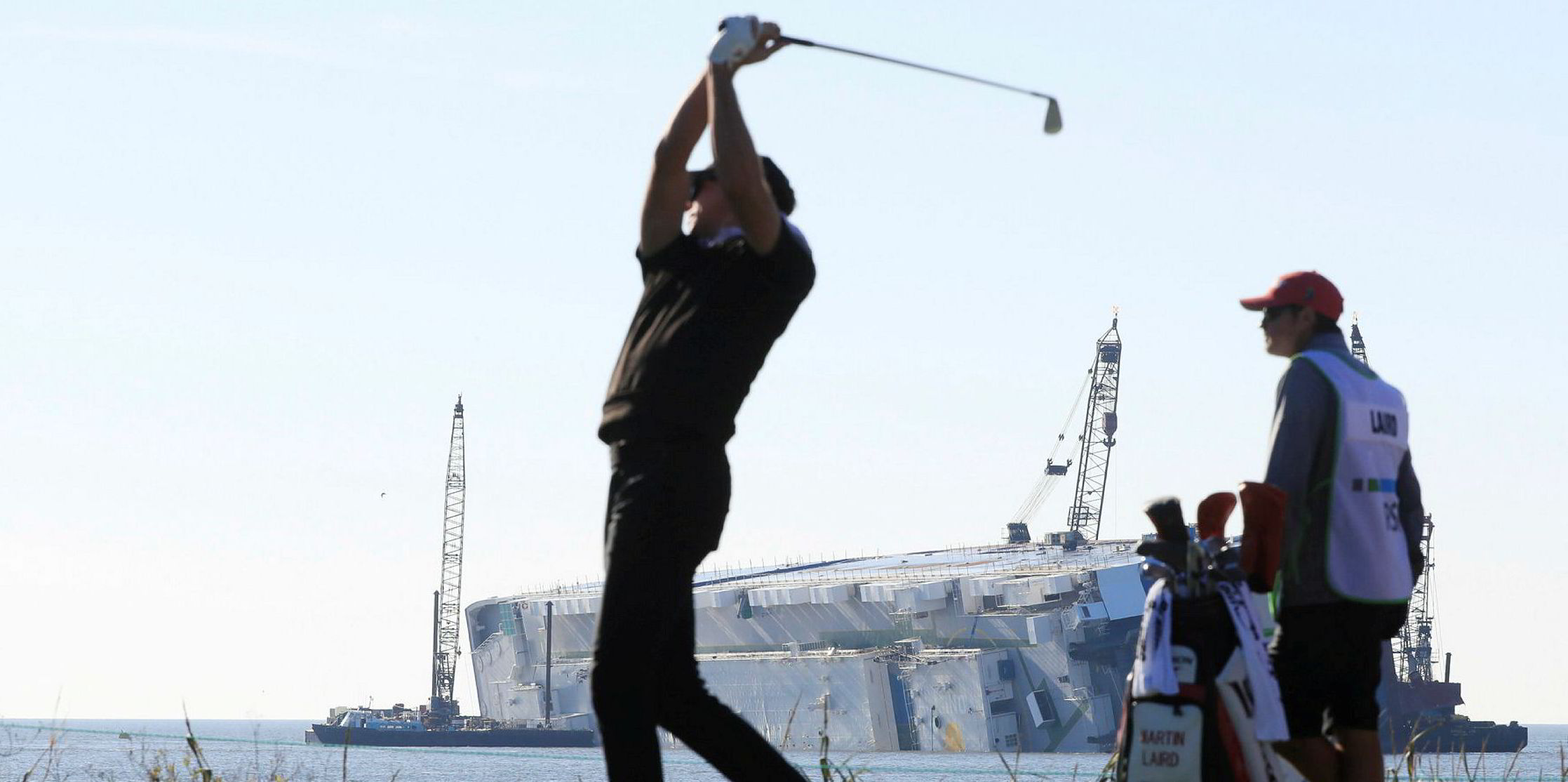The Greek Public Ports Authority (PPA) has dramatically increased the budget for its tender to raise the wreck of the cruiseship Sea Diamond from the coast off Santorini to €434m ($480m) after its initial tender flopped.
The move appears to be aimed at generating more interest among salvors for the job.
Late last month, the PPA, along with the Ministry of Shipping and Maritime Affairs, issued a tender for salvors to bid for the job at a price of €62m, including tax.
However, it is understood the budget was not high enough to attract bidders by the 9 December deadline.
Raising the wreck of the 22,412-gt Sea Diamond (built 1986) is regarded as a complex job, which will hold considerable financial risk for salvors.
The wreck has been resting on volcanic reefs at a depth of about 100 metres since 2007 and is likely to have been significantly weakened, making the job of raising it in one piece particularly difficult.
It still has fuel oil and other pollutants onboard that must be contained to protect the local environment and tourism industry.
Fresh deadline
Salvors have now been asked to bid by 20 January. Although the budget has been set at a level salvage companies will find attractive, they will face considerable risks in taking on the job.
According to the contractual terms, salvors must complete the wreck removal within 36 months and will be liable for all third-party damages.
Salvors will only be paid on the successful completion of the work, which includes taking the vessel for demolition.
The successful salvor will be asked to take out $500m liability cover to protect itself during the project. The €434m budget also includes 24% value added tax, leaving salvors to work on a budget of €350m.
There is also the issue of who will ultimately pay for the wreck removal. The Greek government is seeking to recover funds from the vessel's owner and its protection and indemnity insurer, West of England.
The Greek government will be aware that considerable funds are available through the International Group of P&I Clubs' pooled claims system and reinsurance cover.
Legal obligation
However, the owner, Elona Maritime, may well argue that with the Greek government originally agreeing to leave the wreck in situ after it sank, it no longer has any legal obligation to remove it.
Greek authorities were forced into the wreck removal after studies showed it was continuing to pollute the local environment.
A Greek court also ruled that leaving the wreck as it lies is also in breach of environmental regulation, including the International Convention for the Protection of the Mediterranean Sea Against Pollution (Barcelona Convention).
The International Group’s 13 members and its reinsurers will be nervous at the prospect of having to collectively pay out on a $434m wreck-removal bill dating back to the 2007 policy year.
They have already seen the number of pooled claims and costly wreck-removal jobs increase over the past two years.






